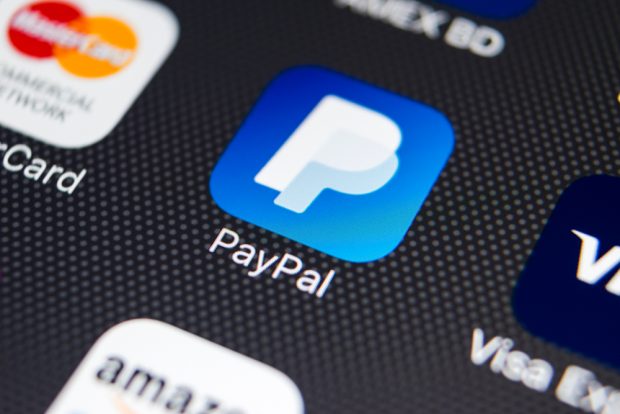 Credit/Shutterstock
Credit/Shutterstock
The CFPB on Tuesday invited comments for its proposal to supervise larger nonbank companies, like PayPal, that offer services like digital wallets and payment apps.
A CFPB news release said the proposed rule would ensure that nonbank financial companies that handle more than five million transactions per year adhere to the same rules as large banks, credit unions, and other financial institutions it already supervises.
Recommended For You
When the CFPB began moving in on non-banks in 2022, CUNA and NAFCU commented that they approved the action. NAFCU said some fintechs posed a risk of "regulatory arbitrage" by designing their business to skirt regulations to gain a competitive advantage.
CFPB Director Rohit Chopra said the proposed rule is designed to prevent regulatory arbitrage by payment fintechs.
 Rohit Chopra
Rohit Chopra "Payment systems are critical infrastructure for our economy. These activities used to be conducted almost exclusively by supervised banks," Chopra said. "Today's rule would crack down on one avenue for regulatory arbitrage by ensuring large technology firms and other nonbank payments companies are subjected to appropriate oversight."
Greg Mesack, NAFCU's SVP of government affairs, said Tuesday that the CFPB's rule supports NAFCU's long-stated position that more government regulation of fintechs is needed to create a level playing field with credit unions.
 Greg Mesack
Greg Mesack "Today's proposed rule will help ensure that large fintechs and nonbanks offering digital consumer payment applications are held to similar standards as credit unions and other institutions examined by the CFPB," Mesack said.
Mesack said nonbank payment services, including P2P apps like Venmo, play a significant role in the market for consumer payments.
"To better protect consumers and ensure competitive fairness, the CFPB must seek to reduce supervisory gaps between nonbanks and credit unions offering digital payment products or services," he said.
The CFPB said digital payment applications have become a common way for people to send money to friends and family. They have also gained a significant share of retail transactions.
However, the CFPB said complaints about some services have been rising in recent years. The CFPB has long had the authority to regulate such companies, but it has not had examiners in many of these companies.
The Consumer Financial Protection Act provides the CFPB with the authority to conduct supervisory examinations over all nonbank companies in the mortgage, payday loan and private student loan industries, as well as those who serve as service providers to banks and credit unions.
The CFPB is accepting comments on the rule through Jan. 8, 2024.
© Touchpoint Markets, All Rights Reserved. Request academic re-use from www.copyright.com. All other uses, submit a request to [email protected]. For more inforrmation visit Asset & Logo Licensing.







